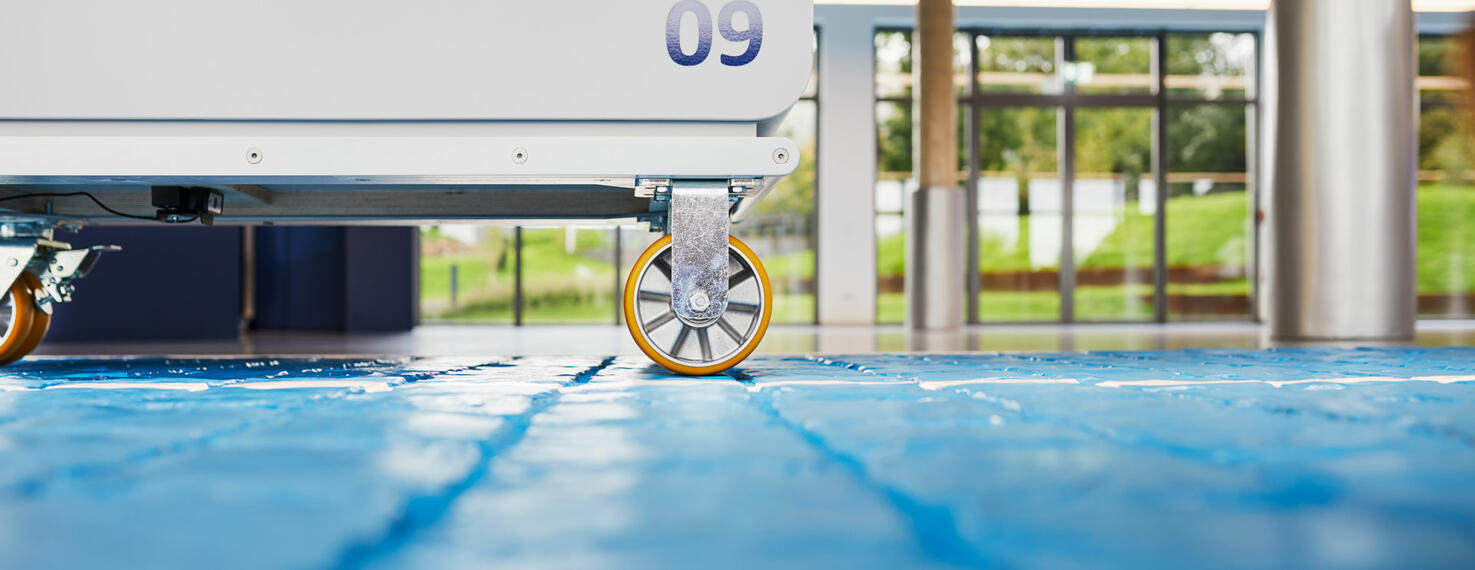
Лексикон: T
The wheel tread material
The tread material used for wheels affects various factors: the drive comfort, the resistance of the wheels and castors to temperature, various chemical and other influences, and how floor-friendly they are. This means that the precise requirements for a particular application must be known in order to choose the right material. The TENTE range offers different options so that every device can be equipped in the best possible way.
The softer tread materials indicated in Shore A are rubber and polyurethane (PUR), for example. Rubber wheels can be made of solid rubber, hard soft rubber or thermoplastic rubber (TENTEprene). There are also electrically conductive versions. Rubber is almost universally applicable and particularly gentle to floors. It is also highly resistant to many substances.
PUR is also kind to floors, non-marking and vibration-damping, and is extremely abrasion-resistant and durable. In addition, it has low rolling resistance . A distinction is made between wheels with a tread made of injected or cast polyurethane. The cast version is generally of higher quality and slightly softer than injection-moulded PUR. Injection-moulded PUR, however, is harder and therefore offers slightly better mobility.
Harder tread material: Plastic and cast metal
Plastics such as polyamide (PA) are harder than rubber and polyurethane. Accordingly, the hardness is indicated in Shore D. PA is corrosion-resistant, break-proof and hygienic. It can be used at temperatures from -40 °C to +80 °C. Another option is polypropylene (PP), which has properties similar to those of polyamide.
Cast iron can be used if the wheel needs to be especially hard. It has a very high load-bearing capacity and is extremely wear-resistant. It can also be used at extreme temperatures from -100°C to +600°C. In the case of sensitive floors, however, the comparatively high surface pressure must be taken into account.
